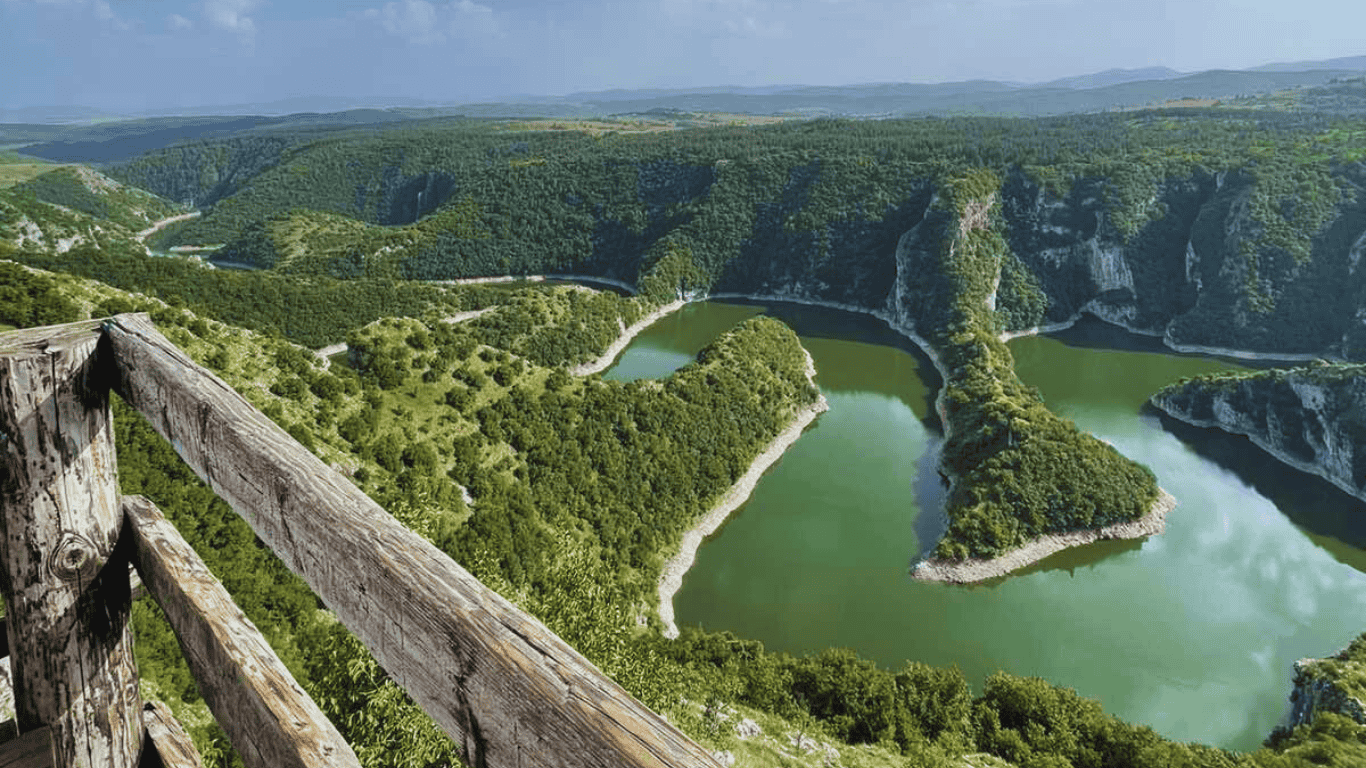Live and work in Serbia
Serbia – a country of natural beauty, a capital city bubbling with nightlife, and a rich cultural history, covered in monasteries and other stunning archeological sites. It is definitely a place with a lot to offer, but what is it like to live there?
Read on and discover the ins and outs of Serbia.

Click below to read more about:
- Latest available jobs in Serbia
- What you need to know about living and working in Serbia
- Basic facts about Serbia
- What is it like to work in Serbia?
- How to find jobs and housing in Serbia
- Why should you get a job in Serbia?
- Popular cities in Serbia
- Speak to one of our recruiters
- Life in Serbia
- Cultural experiences in Serbia
- Typical Serbian food
- Where to learn Serbian
- Still not convinced about Serbia?
- Taxes in Serbia
- FAQ
- Find work in other countries nearby
Latest available jobs in Serbia
Unpaid Remote Internship with Job Squad Fall 2024
Are you looking for a hands on and every changing /challenging internship as part of your education - then keep reading!
Currency
The Serbian Dinar is the official currency in Serbia
Famous people
Some famous Serbs include Nikola Tesla, Novak Đoković and Nikola Jokić.
Population
Serbia has ~6.6 million residents, and the largest part lives in Belgrade
Typical food
Grilled meats, fresh bread and cheeses. Dishes like ćevapi (grilled minced meat), sarma (stuffed cabbage rolls), and ajvar (a pepper-based spread)
Avg. working week
Serbia has a 40-hour work week, which is about 8 hours daily
Location
Serbia is located between Southeast and Central Europe, bordering countries like Hungary, Romania, and Croatia
Languages
Serbian is the official language used by Serbs, with both Cyrillic and Latin alphabets in use
Healthcare
Health care is mostly self-paid insurance for foreign employees, with high quality standards. There is also public healthcare but it usually involves longer waiting times
What you need to know about living and working in Serbia
With its fascinating history, the architecture in Serbia tells a story of various empires: Ottoman-era mosques, the Roman city of Viminacium and the infamous Devil’s Town (although this was formed by natural processes). Speaking of nature, beautiful landscapes make it possible to experience many adventures, such as skiing on Kopaonik Mountain and hiking around Djerdap National Park.
There is also a strong passion for sports: tennis in particular, with tennis star Novak Djokovic proving a national gem, as well as basketball and water polo! Socialising, going out and nightlife are an important part of Serbian culture, with the renowned Skadarlija in Belgrade providing the perfect setting for a memorable night out. Serbs are known to be warm, open and expressive communicators, and are hospitable and welcoming. Little tip: the Serbs are avid coffee drinkers – it is an big part of their social interactions.
Choose to work in Serbia if you:
- Want to combine a job with experiencing a rich, unique culture up close
- Value community and love spending time with groups of friends after workHave a love for exploring and adventure
Here you can read more about living conditions in Serbia, job opportunities and much more.
Basic facts about Serbia
- Average working hours per week: 40 hours, 8 hours daily
- Typical working day: Monday to Friday from 9:00 to 17:00
- Number of Vacation days: 20 days / 4 weeks
- Commute: Buses and trains are the main mode of public transport, with trams and trolleybuses enabling moving around in the cities
- Work culture: You will have colleagues from everywhere, but you will speak in your own native language, supporting
What is it like to work in Serbia?
Within the working culture there is a mix between traditional, respectful values and more collaborative, open communication. Relationships in the workplace are highly valued, with trust-building essential to business deals. Companies will often prioritise creating connections and a feeling of reliability beforehand. This can include sharing meals, extensive conversations and multiple meetings. Regardless of it being written or verbal, an agreement is expected to be honoured fully.
Read more about working and living in Belgrade
How to find jobs and housing in Serbia
If you are looking for a job in Serbia, it is a good idea to ally yourself with an international recruitment agency. At Job Squad, we have supported thousands of people to find their dream job abroad – you can read their stories here. With the support of a recruitment agency behind you, you’ll get support finding the right job positions. Since agencies understand the needs and preferences of both job seekers and various companies, they can more easily connect people with the ideal workplace.
With IT and the tech industry growing, foreign professionals within these fields are often highly sought after. Educators, especially English teachers, are also in high demand. See our available jobs list above to gain some insights into companies looking right now.
Looking for housing in Serbia is best done on websites like 4zida.rs and Halooglasi – translate the pages to English and scroll away! It is recommended to download the Viber messenger app to negotiate. You can also ask your employer for support in finding a place to live. It is always smart to start the housing search early on to avoid stress and work out details in advance.
Why should you get a job in Serbia?
All in all, Serbia has a lot to offer in terms of culture, adventure and community. Learn to work in a work environment that prioritises trust and relationships, while meeting interesting people and enjoying the mountains, cuisine and nightlife.
Popular cities in Serbia
Speak to one of our recruiters
Life in Serbia
Living in Serbia is a mix of history, nature, and kind people. You can drive along the Danube River, see Tara National Park, or just take in the historic atmosphere of Belgrade’s ancient fortress with the view of Sava and Danube rivers.
Serbia is also known for its fun festivals and traditions. One of the biggest events is the EXIT Festival in Novi Sad, one of Europe’s largest music festivals, where people gather to enjoy live music in Petrovaradin Fortress. You’ll also experience Serbian Orthodox traditions, like the annual Slava celebration where families celebrate their patron saints.
Cultural experiences in Serbia
Serbia has many cultural experiences in each region. The capital, Belgrade, is known for its nightlife, café culture, and historic sites like the Kalemegdan Fortress. The mountains in the south have beautiful villages with traditional lifestyles.
Typical Serbian food
Serbian cuisine is known for dishes like ćevapi (grilled minced meat), sarma (stuffed cabbage rolls), and kajmak (creamy dairy spread). Serbian hospitality often includes rakija (a traditional fruit brandy), and a meal at a Serbian restaurant is usually very lively with plenty of delicious food to share.
Where to learn Serbian
Learning Serbian can be a good experience, leading to connections with locals and a fuller understanding of the culture. Many language schools in Belgrade and Novi Sad offer immersive courses where you can learn the language while participating in cultural activities.
Still not convinced about Serbia?
Imagine yourself walking through the historic streets of Belgrade that blend with modern street art and city life. Belgrade is one of Europe’s oldest cities, with landmarks like the Temple of Saint Sava, one of the largest Orthodox churches in the world, and Skadarlija, a charming bohemian quarter.
Or head to Novi Sad, known for riverside views, cultural festivals, and baroque architecture. If you’re a nature lover, visit Zlatibor, a mountain destination perfect for skiing in winter or hiking and wellness retreats in the summer.
Serbia is also ideal for outdoor activities like hiking and rafting down the Drina River. The countryside has a lot of options for adventure. Additionally, Serbian winters bring opportunities for skiing in Kopaonik mountain.
Food is a highlight of Serbian culture including traditional meals like pljeskavica (a Serbian-style burger), grilled meats, and fresh salads made from locally-sourced produce. Relax at a kafana, a traditional Serbian café, sip on rakija, and enjoy the flavours and atmosphere.
Serbia has different living options depending on your lifestyle preferences. Belgrade is great if you enjoy activities, restaurants, and a fun nightlife. Novi Sad, Serbia’s second-largest city, has a more relaxed atmosphere with a rich cultural scene and beautiful riverfront views. For a slower, nature-oriented lifestyle, smaller towns like Niš and Subotica offer a mix of charm, history, and a slower pace of life, with easy access to natural landscapes and historic sites.
Taxes in Serbia
If you have a job in Serbia, you must register with the local tax office to obtain a personal tax identification number. Serbia has a flat income tax rate of 10%, but other deductions may apply based on residency status and income level. If you continue to reside in another country, you should check with your home country’s tax authority to understand any international tax obligations.
FAQ
Yes, EU citizens need a residence and work permit to work in Serbia, although the process is usually straightforward.
In Serbia, English proficiency varies among individuals, but generally, you can expect to find a decent level of English comprehension, especially in tourist areas, hotels, and restaurants. Younger generations tend to have a better grasp of English compared to older generations. But it is very recommendable to learn some Serbian phrases as a sign of respect, and it will make things easier if you plan to stick around for a while.
Serbia has hot summers with temperatures around 25-30 degrees and cold winters with snowfall. It’s ideal for seasonal activities.
Serbia has well-developed public transport options in cities like Belgrade and Novi Sad, and intercity buses and trains are available.
